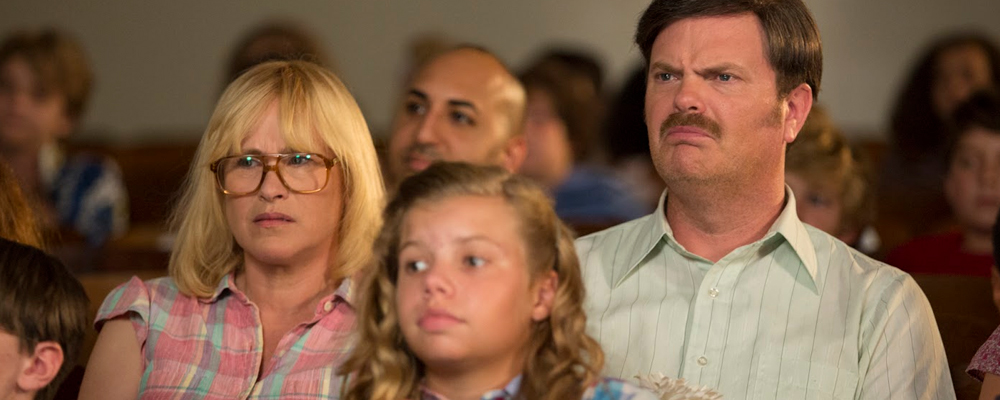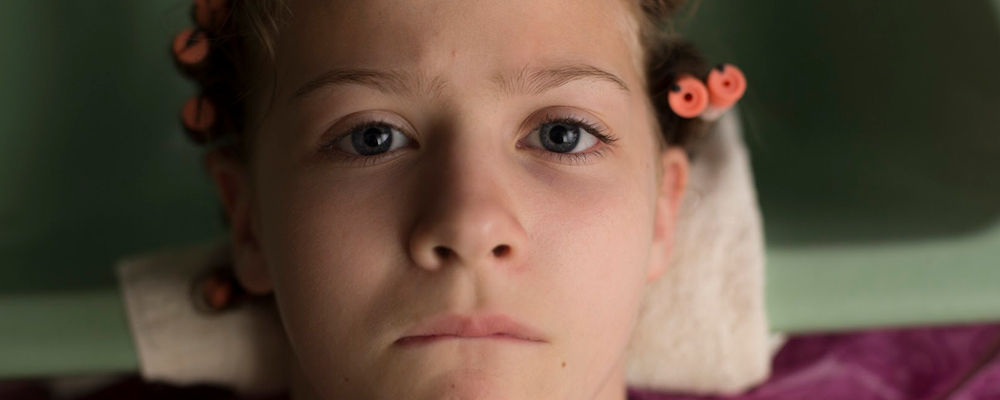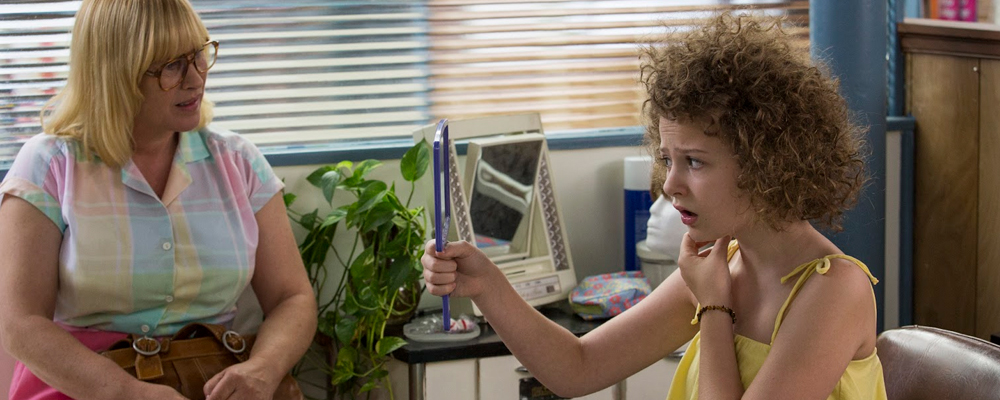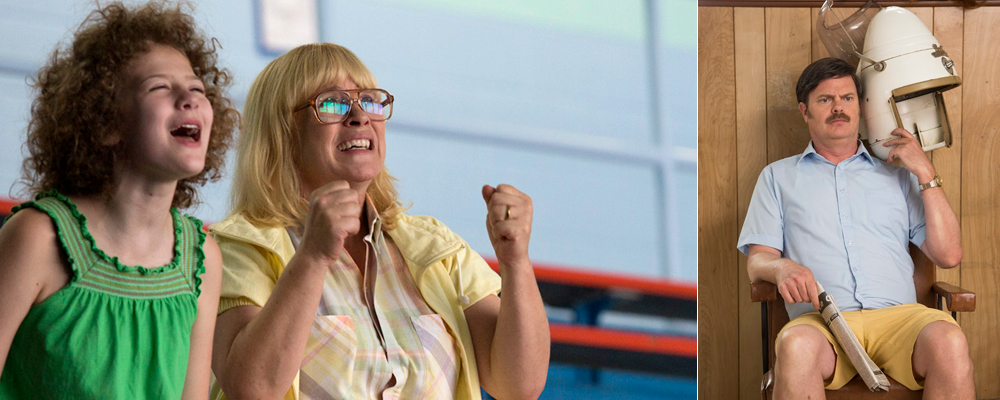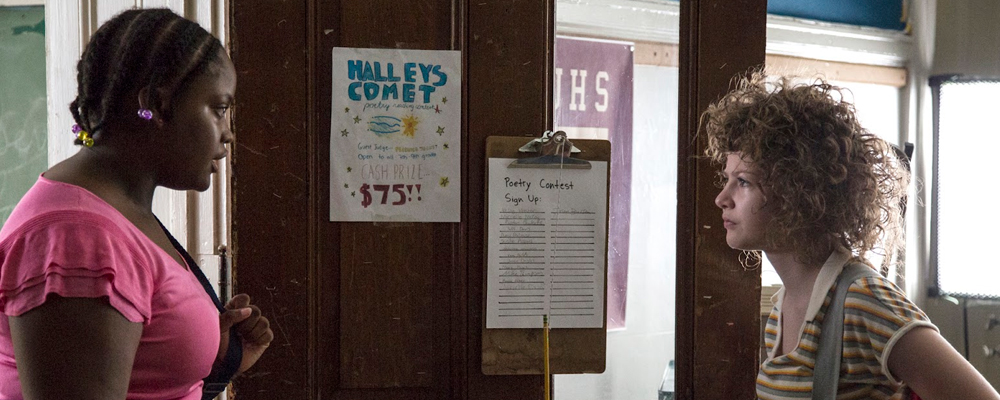Colette Burson’s ‘Permanent’ Pays Tribute to Southern Culture and Awesome Eighties Hair
Sandra Miska
Those early teenage years are rife with obstacles regardless of circumstances, and 13-year-old Aurelie Dixon (talented newcomer Kira McLean) faces challenges both universal and unique to her era and geographical location in “Permanent,” a coming-of-age family comedy set in 1982 Virginia. As the new girl in a small town, Aurelie is convinced that her key to popularity lies in her hair, so she convinces her mother, Jeanne (Patricia Arquette) to allow her to get a permanent, a fad at peak popularity. Unfortunately, since the Dixon family is in a transition period due to dad Jim’s (Rainn Wilson) return to school following a career in the Air Force, they can only afford to take her to a beauty school, and the result is an overdone perm that leads to Aurelie’s awkward years becoming even more unbearable.
“Permanent” was written and directed by Colette Burson, the woman who co-created the hit HBO series “Hung,” as well as wrote for FX’s “The Riches.” The Virginia native revealed to Entertainment Voice how she drew upon her own experiences growing up in the south and the people she knew for this latest project.
“There were definitely autobiographical elements,” she admitted. “I did get a horrible permanent in 1982 and it turned out to destroy my hair follicles, as well as my social life, for sure. And also, like the family [in the film], at that period in time I was in a small town in the south that felt very cut off from the world without irony. Lots of comedy, but no irony.”
While Aurelie struggles socially at junior high, her parents face their own problems, as Jeanne, the family’s breadwinner, works long hours as a waitress while Jim adjusts to being a middle-aged college student. Their schedules hardly leave time for romance, although Jeanne feels it more than her husband, and one of the film’s most memorable scenes involve her failed attempt at morning lovemaking. This marital strife leads to their seeking help from their family therapist neighbor Jerry (Michael Greene), one of the film’s more colorful characters who has a particular fondness for Jeanne. Burson spoke about creating this world, which contains a satisfying mix of oddness and warmth.
“I do think that one of the fascinating things about the film is, sometimes I think of it as a perfect egg of oddness,” she said. “It’s a strange world to go to now in 2017. It runs in a different rhythm and it has a feel to it. There’s a look to the movie, and I think there are character in the movie that you would only find in the context of this world… Particularly at that time, when there were little outside influences, I think that people were themselves without outside eyes. They were more eccentric.”
Hair, and how it ties into confidence, is an overarching theme in the film, not only with Aurelie, but also with her only girlfriend, Lydia (Nena Daniels), a young African-American woman who feels self-conscious about her own unruly hair that she wears in braids. This issue isn’t just exclusive to the ladies, as Jim faces failing a swim class, a requisite for graduation, because he can bring himself to dive into the water without his toupee.
“I think hair is such a seminal metaphor that connects to identity. How we feel about our hair itself, it can convey strength, it can convey weakness – It’s just an expression of self,” said Burson.
Burson went on to discuss the intense popularity of the permanent, a cultural phenomenon that is bewildering to many in retrospective. “Many woman that I’ve talked to have come up to me and sort of half-announced and half-confided that they too had their hair ruined by a permanent. And that’s why it’s set in 1982, because it’s a very particular moment where somehow we were sold as a culture on the idea that the way to get a soft, flowy mane was to go and pour acid on your head…. It was such a strange rite of adolescence for a whole swath of women, this trip to the beauty salon that left them in tears and traumatized [laughs]. Tragedy plus time equals comedy; everybody just laughs hysterically at it now.”
While the worlds of “Permanent,” “Hung” and “The Riches” are vastly different in many ways, one thing is constant. Each features a complex family with each member being a fully formed character with strengths, weaknesses, fears and hopes. What asked about writing strong families, Burson explained that her focus is morea about the position of the outsider, something she knows about being a person from the south who has spent most of her adult life on the coasts.
“So, it’s the theme of outsiders versus insiders,” she explained. “In ‘The Riches,’ you had a family of outsiders, in ‘Permanent,’ there’s a family of outsiders, and in ‘Hung,’ he was the consummate insider, he was the guy who was really popular in high school, and then he becomes an outsider. So, it’s just a person, who’s just outside of a group, I think that’s the connective tissue. I feel like there’s a lot of comedy there.”
Next up, Burson revealed that she has plans to write another television show about a family, as she was inspired during the making of ‘Permanent.’ “I think that Kira and Rainn and Patricia really worked standing next to each other. You buy them as a group, and when you buy a group of actors that you’ve cast as a family unit, there’s a special magic that happens.”
“Permanent” opens Dec. 15 in select theaters, VOD, Amazon Video and iTunes.

